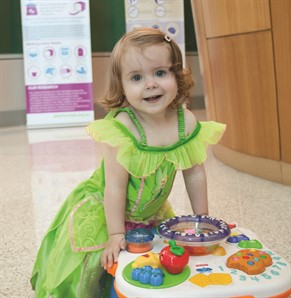Search
News & Events
Vitamin D link to depression in mothersResearch by The Kids Research Institute Australia shows a link between low vitamin D during pregnancy and post-natal depression.

News & Events
Why are women delaying pregnancy?A study by The Kids Research Institute Australia and the University of Western Australia is exploring the reasons why women are delaying pregnancy into their thirties.

News & Events
Maths & making a differenceFor Perth researcher Ami Bebbington, mathematics is a vital tool in her personal and professional quest to improve the lives of children everywhere.

News & Events
Child Health Seminar: Build It and They Will Play!Free public seminar - we will be discussing how neighbourhoods provide opportunities (or barriers) for kids' play, physical activity, health and development.

News & Events
Sunlight link to obesity and diabetesResearchers from The Kids Research Institute Australia and Harry Perkins Institute of Medical Research have found that small regular doses of sunlight suppress the develo

News & Events
New study recommends changes to cystic fibrosis monitoring in young childrenA new Australian study that looked at the long term impacts of early lung infections in young kids with cystic fibrosis has recommended changes to monitoring
News & Events
Experts Pledge Global Assault on Kids’ CancerA global plan to tackle one of the most aggressive types of childhood brain tumours will be developed as a result of a meeting of international experts in WA.
News & Events
An evening for the future of autismJoin Dr Andrew Whitehouse, head of Developmental Disorders research at The Kids, as he shares with you his vision for autism research.
News & Events
Healthy Pregnancy SeminarPregnancy researcher and psychologist Dr Monique Robinson and an expert panel will lead a discussion on factors that really impact on the health of mum and bub.
News & Events
Big Data: The Big PictureThe Kids will host a free public seminar Big Data: The Big Picture, showcasing some of our cutting edge data visualisation and analysis tools.
